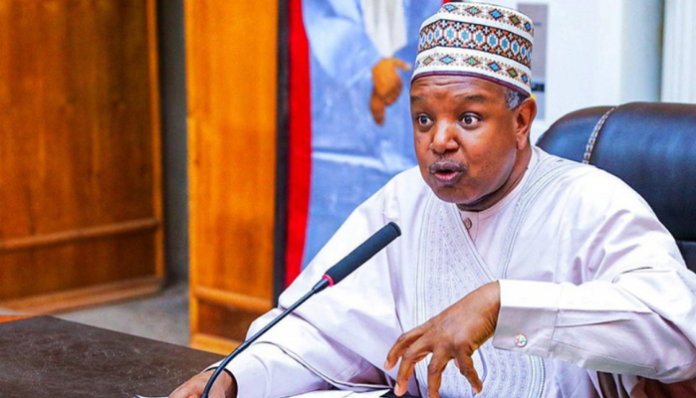| The Nigerian economy is poised for significant improvement in 2025. The inflation rate for 2025 is projected to decline, bringing better standards of living. Senator Abubakar Bagudu, the Minister of Budget and Economic Planning, made this statement during a press conference in Lagos. He expressed confidence in the government’s fiscal and monetary policies. These include harmonised exchange rates and increased agricultural output. Bagudu attributed Nigeria’s challenges, like high inflation, to structural issues worsened by global shocks. However, he outlined steps taken to address these issues, such as investments in security, public infrastructure, agriculture, and renewable energy. The administration is also working to attract foreign investments and create a business-friendly environment. While acknowledging current hardships, Bagudu stressed the government’s dedication to inclusive growth and poverty alleviation. For Nigerian entrepreneurs, this optimistic outlook, coupled with the projected inflation rate for 2025, signals opportunities for expansion and investment in sectors like agriculture, renewable energy, and infrastructure development. Source: Nairametrics Opportunities for Entrepreneurs in Nigeria’s Economic Outlook for 2025 As Nigeria prepares for economic growth in 2025, entrepreneurs can thrive by seizing opportunities in key sectors. Strategic investments and innovation, aligned with government reforms, will provide a competitive edge. Below are areas of potential growth: 1. Agricultural Investments The government’s focus on increasing agricultural output creates opportunities for innovation in agribusiness, processing, and distribution. Entrepreneurs can explore precision agriculture, smart irrigation, and drone applications. Significant potential also exists in post-harvest management and value-added processing to reduce waste and meet growing demands. 2. Infrastructure and Renewable Energy Nigeria’s investments in infrastructure and renewable energy open avenues for businesses offering solar technology, energy storage, and sustainable building materials. Entrepreneurs can implement off-grid solar installations for rural areas and energy-efficient solutions for urban centres. Infrastructure projects in roads, bridges, and housing provide additional opportunities for contractors and suppliers. 3. SME Growth and Digitalisation The government’s business-friendly initiatives enhance access to funding, technology, and markets for small businesses. Entrepreneurs should embrace digital tools to improve efficiency and scalability. Opportunities exist in e-commerce, fintech solutions, and digital marketing services, which can expand business reach and optimise operations. 4. Health and Education Ongoing investments in public health and education infrastructure offer entrepreneurs the chance to build better systems. Opportunities include health tech, telemedicine, and private healthcare services to address access and quality gaps. The education sector provides prospects in e-learning platforms, vocational training programmes, and content development. 5. Export and Trade Efforts to diversify the economy create opportunities for export-oriented businesses. Entrepreneurs can explore sectors like agro-processing, textiles, and handmade crafts. Leveraging trade agreements and partnerships can help access international markets. Branding and quality improvements will enhance global competitiveness. Challenges to Address Despite promising projections, entrepreneurs must navigate inflationary pressures and potential policy inconsistencies. Strategic planning and financial prudence are essential for success. This projected inflation rate for 2025 highlights the need for cost-saving measures and value-added services to remain competitive. Insightful Takeaway Abubakar Bagudu’s optimistic outlook for 2025 signals a brighter future for Nigerian businesses. Entrepreneurs should position themselves in growth sectors like agriculture, renewable energy, and infrastructure. By leveraging government reforms and investments, businesses can drive innovation and sustainability. With the inflation rate for 2025 projected to decline, businesses must remain strategic and adaptable. Focusing on innovation and efficiency will help seize the opportunities ahead. Source: Entrepreneur.ng |
About Us
EnterpriseThrob is an enterprise online news medium, published by a team of tested news persons. The medium provides intelligent information and insight in various areas of the Nigerian economy as it reflects on the global space.
Contact us: For News, Opinions and Advertisement, Please reach us via:
PHONE:+234-8061396410. EMAIL: enterprisethrob@gmail.com
© Copyright 2024 - EnterpriseThrob.com



